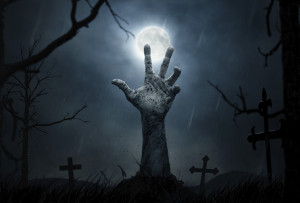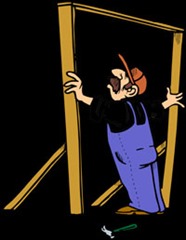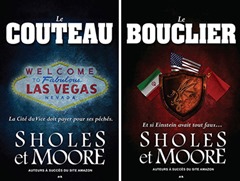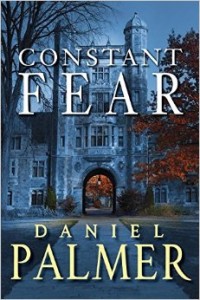 I’m going to try to wrap up my thoughts on the mischievous missive delivered by Mr. Porter Anderson at Writer Unboxed. The first part of my response is here. The second part is here.
I’m going to try to wrap up my thoughts on the mischievous missive delivered by Mr. Porter Anderson at Writer Unboxed. The first part of my response is here. The second part is here.
There are three issues outstanding:
Issue 3 – Is the Party Over?
Issue 4 – What Counts as Writing Success?
Issue 5 – Can Fiction Writing Be Taught?
Last week I upheld the view that this is the best time on Earth to be a writer. Lest you think I only mean because writers can now self-publish and make real dough, here’s some news that rippled outward from the traditional side of things: Sci-Fi writer John Scalzi inked a $3.4 million deal with Tor Books. That’s for thirteen books over a ten-year period. I’d say that counts as good times. Mr. Scalzi explains his thought process here.
Ah, but is the party over? Or about to be? Has there been a “tonal shift” in what Porter calls the “palaver” from the indie writer sector of the publishing world?
I do sense a shift, but not a negative one. It is, rather, the natural maturation of a revolution. During the Early Konrathian period of indie publishing, the talk was all about waking people up and stirring them to action (“Give me liberty, or give me death!”). There was an exuberance. There were fight songs around the campfire. Free beer.
It was Thomas Paine and Patrick Henry time. Yes, there was plenty of vitriol, too, which is always part of an uprising. What the American colonists said about the tea tax was not intended for polite society. Nor were the words of indies when reacting to representatives of the Authors Guild.
Now, it seems, the tone has changed from revolution to constitution. From muskets to quills. Giddiness has been replaced by plans and purpose and increasing success.
But just what is success? This is Issue #4.
One type is, certainly, traditional, bestselling, A-list status. Another type is having the freedom to publish what you want, when you want, and making steadily growing income. When you read surveys of traditional authors and how frustrated they can be with their publishers, this type of success might even be all the more attractive.
For some writers the “validation” of traditional success is the most important thing. Others find more satisfaction going directly to readers…and to the bank.
We are all free to define success for ourselves, and should. What does it mean specifically to you? Talk about it in the comments.
Finally, Issue #5. The title of Porter’s post was The Dreaded Training Debate: What If It Can’t Be Taught?
The question implies that a negative answer might be possible. Or, worse, that there is a possibility the whole enterprise of teaching fiction is little more than a racket. That’s what brought me and a couple of my teaching colleagues—Donald Maass and David Corbett—into the comments with some admonishments.
Porter, I’m happy to say, qualified this impression, kindly mentioning my name and my two fellows (and others) as exceptions. But he added this in a comment:
It’s been interesting to see some of these folks I’ve mentioned struggle with this piece. On the surface, of course, that looks natural in that no one wants to be painted with too broad a brush. But you note that I mentioned none of them, nor would I — they’re not the kind of problematic how-to players I’m talking about. And yet, to some degree, they seem unsettled by even the discussion of the problem.
This makes me think (I’m speculating here, they have not told me this) that the problem of “the toadstools” — who are NOT these writer/teachers — is much on their minds.
I can’t answer for my colleagues, but I’m happy to clear up any confusion on my part. No, “the toadstools” were not on my mind at all. What set me off was even entertaining the notion that writing can’t be taught. In point of fact, virtually all writers have been taught how to write in some form or fashion. It’s just that not many talk about it. As good old Ernest Hemingway once said, “It’s none of their business that you have to learn to write. Let them think you were born that way.”
Writing is taught in many ways.
It is taught by editors who know what they’re doing.
It is taught by teachers who know what they’re doing.
It is taught by books by people who know what they’re doing and how to teach others to do the same.
It is taught by critique partners and beta readers.
It can be self-taught by reading novels and analyzing what other authors do. That’s fine. What I do when I teach, however, is save writers years of trial and error by showing them right away what successful authors do, and how they can do it themselves.
The proof of all this, I add as a former trial lawyer, is in the testimony of credible witnesses. The successful writers who themselves give credit to writing instruction.
Let me offer just one example. This from critically acclaimed author Sarah Pekkanen, who gave an interview to NPR about getting published:
I needed advice before I tried to write a novel. The usual axiom — write what you know — wasn’t helpful. I spend my days driving my older children to school and changing my younger one’s diaper — not exactly best-seller material.
So I turned to experts. Three books gave me invaluable writing advice. One, by a best-selling writer [Stephen King]; one, by a top New York agent [Donald Maass]; and one, by a guy who struggled for years to learn how to write a book and wanted to make it easier for the rest of us [some joker named Bell].
The full interview is here. That was six years ago. It’s nice to see how Sarah’s career has prospered since. I’d say she’s offered credible testimony that writing fiction can indeed be taught.
Whew! That’s three full posts all sparked by the incendiary flying fingers of one Porter Anderson, provocateur and good sport. If you bump into him at a conference, don’t dislodge his keyboard…buy him a Campari instead.
Now I’m done. Next week we return to our regularly scheduled program!










